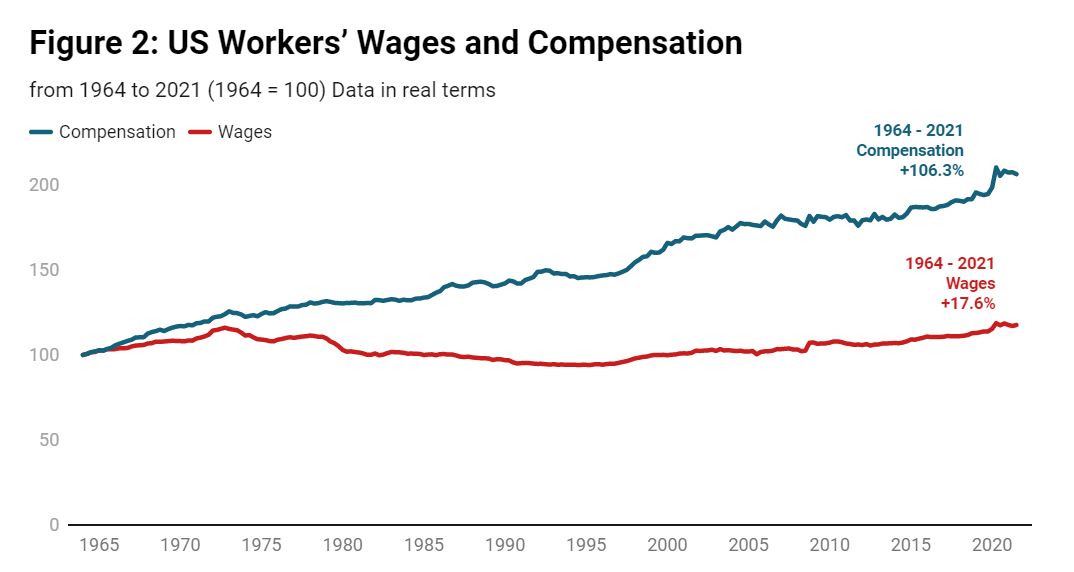Analyzing The Great Decoupling: Trends And Forecasts

Table of Contents
Defining the Great Decoupling
The Great Decoupling refers to the growing economic and technological separation between major global powers, particularly the United States and China, but also extending to broader regional blocs. This shift represents a departure from the era of globalization, characterized by increased interconnectedness and interdependence. The historical context for this decoupling is multifaceted. The rise of protectionist policies, fueled by concerns over national security and economic sovereignty, has played a significant role. Technological rivalry, particularly in crucial sectors like semiconductors and artificial intelligence, is further intensifying this separation. The COVID-19 pandemic exposed vulnerabilities in globally integrated supply chains, accelerating the push for regionalization and self-reliance.
- Shift from globalization to regionalization: Countries are increasingly prioritizing regional trade agreements and partnerships over global ones.
- Increased focus on national security and self-reliance: Concerns about dependence on foreign suppliers are driving efforts to reshore or nearshore critical industries.
- Diversification of supply chains: Businesses are actively seeking to diversify their supply chains to mitigate risks associated with geopolitical instability.
- Rise of "friend-shoring" and "near-shoring": Countries are increasingly prioritizing trade and investment with trusted allies, leading to a shift towards regionalized supply chains.
Economic Trends Driving the Great Decoupling
Inflation, supply chain disruptions, and trade wars are significantly accelerating the decoupling process. The global economic landscape is becoming increasingly fragmented, with regional economic blocs emerging as key players. Specific sectors are experiencing distinct impacts: the technology sector faces intense competition and scrutiny regarding data security and technological dominance; manufacturing is undergoing a significant reshaping, with companies re-evaluating their global footprints; and the energy sector is grappling with shifting alliances and diversification strategies.
- Increased trade barriers and tariffs: Protectionist measures are hindering free trade and fostering regional economic blocs.
- Regional trade agreements gaining prominence: Agreements like the CPTPP and RCEP are gaining significance as countries prioritize regional economic integration.
- Reshoring and onshoring initiatives: Governments are actively incentivizing companies to bring manufacturing and other activities back to their home countries.
- Impact on global value chains: The decoupling is fundamentally reshaping global value chains, leading to increased fragmentation and regionalization.
Technological Implications of the Great Decoupling
Technology is both a driver and a consequence of the Great Decoupling. The competition for technological dominance is fostering the development of independent technological ecosystems, with countries and regions seeking to reduce their reliance on foreign technology. This has implications for innovation, as resources are directed towards building parallel systems. However, it also risks slowing down overall technological progress by reducing cross-border collaboration.
- Development of alternative technologies: Countries are investing heavily in developing their own technologies to reduce dependence on foreign suppliers.
- Data localization and cybersecurity concerns: Concerns about data security and national security are driving policies that restrict cross-border data flows.
- Competition for technological dominance: The race for technological leadership is intensifying, with significant implications for global power dynamics.
- Impact on AI and other advanced technologies: The decoupling will likely lead to the development of distinct AI ecosystems, potentially impacting global innovation.
Geopolitical Ramifications and Forecasts
The Great Decoupling is fundamentally reshaping international relations and geopolitical alliances. The world may be moving towards a multipolar system, with several major power blocs vying for influence. This shift carries the potential for increased geopolitical competition and regional conflicts, but also opportunities for new forms of collaboration within regional blocs. Forecasting the future is challenging, but several potential scenarios are emerging.
- Increased geopolitical competition: The decoupling is intensifying competition between major powers across various domains.
- Formation of new alliances and blocs: Countries are forging new alliances and partnerships based on shared economic and security interests.
- Potential for increased regional conflicts: The decoupling could exacerbate existing tensions and create new flashpoints for conflict.
- Long-term implications for global stability: The long-term consequences of the Great Decoupling for global stability remain uncertain.
Conclusion
Analyzing the Great Decoupling reveals a complex and evolving global landscape. The trends discussed—from economic shifts to technological rivalries and geopolitical realignments—highlight the significance of understanding and adapting to this new reality. The implications are far-reaching, impacting businesses, governments, and individuals alike. To navigate this changing world effectively, further research into the Great Decoupling’s impact on specific industries and regions is crucial. Stay informed about the evolving dynamics of the Great Decoupling to make informed decisions and adapt to this changing global order. Understanding the Great Decoupling and managing the impacts of the Great Decoupling are essential for future success in this newly fragmented global economy.

Featured Posts
-
 Uber Stock Can Its Robotaxi Strategy Fuel A Comeback
May 08, 2025
Uber Stock Can Its Robotaxi Strategy Fuel A Comeback
May 08, 2025 -
 Andor Season 2 Delayed Trailer Ignites Speculation Among Fans
May 08, 2025
Andor Season 2 Delayed Trailer Ignites Speculation Among Fans
May 08, 2025 -
 Landlords Accused Of Exploiting La Fire Victims Selling Sunset Stars Explosive Claims
May 08, 2025
Landlords Accused Of Exploiting La Fire Victims Selling Sunset Stars Explosive Claims
May 08, 2025 -
 Bitcoin In Son Durumu Ve Guencel Degeri
May 08, 2025
Bitcoin In Son Durumu Ve Guencel Degeri
May 08, 2025 -
 Analyzing Ethereums Market Dynamics A Comprehensive Price Prediction Guide
May 08, 2025
Analyzing Ethereums Market Dynamics A Comprehensive Price Prediction Guide
May 08, 2025
